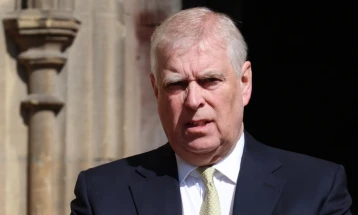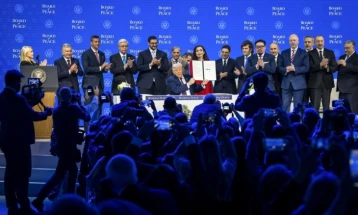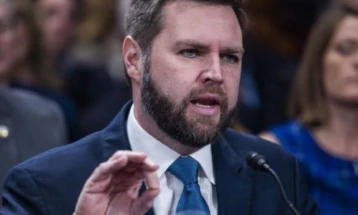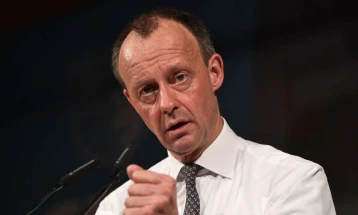Iowa caucus win sets Trump up for comeback despite criminal charges
- Former US president Donald Trump passed the first milestone Monday in what his allies hope will be a quick march to a third presidential nomination.
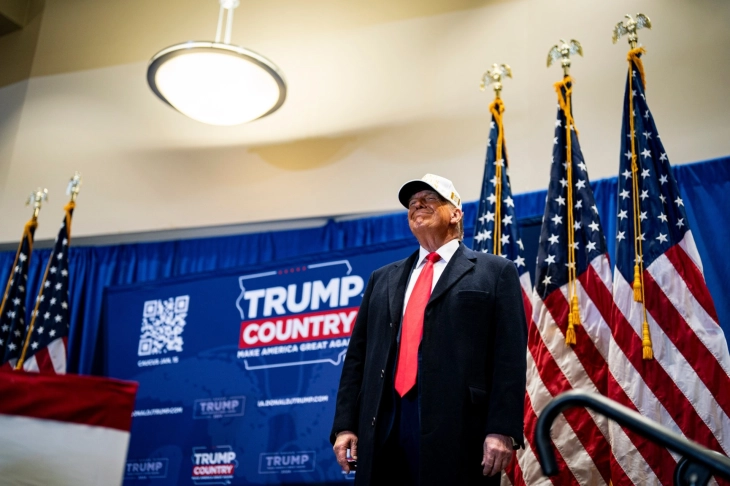
Des Moines, Iowa, 16 January 2024 (tca/dpa/MIA) — Former US president Donald Trump passed the first milestone Monday in what his allies hope will be a quick march to a third presidential nomination.
Iowa Republicans put the defeated former president, facing four criminal cases involving allegations of multiple felonies, on track for another shot at the White House.
Trump won the Iowa caucuses, according to the Associated Press, thanks to the resolve of his die-hard supporters, who turned out on a bitterly cold night that Iowa officials described as some of the worst weather for a caucus in half a century.
Democrats did not hold a presidential caucus on Monday. The party flubbed the 2020 caucuses so badly that no winner was ever formally named. Amid concerns that Iowa’s overwhelmingly white population did not well represent the nation’s changing demographics, Democrats last year decided to begin their nominating contest with primaries in South Carolina and Nevada.
The results show, in case anyone was in doubt, that Trump retains the fervent backing of his die-hard loyalists. His margin of victory is expected to break the record in a contested Iowa Republican caucus, set by George W. Bush, who took 41% in 2000.
Unlike a primary, where voters can cast a ballot at any time during election day — and in many states for weeks before the election — caucuses require voters to attend at a specific time, 7 pm, and stand in front of their neighbors to announce whom they back.
At the 1,657 precinct-level caucus sites around the state, supporters of the candidates delivered speeches, often expressing the grievances and anger that have animated many Republican voters about the border, pandemic-era lockdowns and perceived bias against conservatives.
In pre-election polls, Trump voters were far more enthusiastic about their candidate than were backers of the other candidates.
"There is a Great Awakening happening across the country right now," said Kathryn M. Heilesen, a CPA in Denison, a small city in western Iowa, who was a caucus captain for Trump. The phrase dates to 18th century evangelism in the US, but has more recently been picked up by devotees of the QAnon conspiracy theories.
Her vote for the former president was a matter of faith, but also of prophecy, Heilesen said. "And you just need to listen to the prophets — if you listened to them in 2016, they predicted this."
Although the population of Crawford County, where Denison is located, is almost 30% Latino, the caucus turnout was almost entirely non-Latino white voters.
Nearly half of Trump’s supporters described themselves as "extremely enthusiastic" about their candidate, according to a Des Moines Register/NBC/Mediacom poll of Iowa voters conducted last week. By contrast, only 9% of Haley’s backers were similarly excited while 23% of DeSantis voters said they were extremely enthusiastic.
Trump led among all demographic groups tested in the poll, but was especially strong among voters who identified themselves as evangelical Christians and the 4 in 10 likely caucus voters who labeled themselves as backers of Trump’s "Make America Great Again" movement. Among Trump backers, 60% called themselves either "ultra MAGA" or "regular MAGA," the poll found.
About half of Haley’s supporters identified as "anti-MAGA," while only 1 in 10 said they were MAGA supporters.
DeSantis voters fell between those two poles, with more than half saying they were neutral toward the MAGA movement, the poll showed.
Kurt Moore, 54, a DeSantis supporter in Ames, the home of Iowa State University, said he hadn’t caucused in past elections because "sometimes you know you’re not going to change anything."
This time, he said, he would have "driven through a blizzard" to take part.
"A lot of us think we’re coming to an end as a country if we don’t take a new direction," he said.
"We have a great country ... only if we don’t destroy it. Now with all these people flooding across the border ... people’s tax dollars being used to house illegal aliens in schools. We don’t know what a man or a woman is. It’s a mess, and we have to fix it," he said. Voters are "willing to go out in two degree weather to fix it," he added, looking at the roughly 120 people gathered in a crowded elementary school cafeteria for their caucus.
Moore voted for Trump in 2016 and 2020, but now felt the former president "had his shot," he said and had proven himself inadequate as a leader.
Like several other DeSantis supporters interviewed, he pointed to Trump’s support for lockdowns early in the COVID-19 pandemic and his backing for vaccine mandates.
"That’s really what changed everything, is the COVID policy," he said.
In Iowa, as elsewhere, Haley appears to be consolidating the support of those who have rejected Trump, including disaffected Republicans, independents and some Democrats who said in the poll that they planned to cross over and participate in the Republican caucus, which Iowa’s rules allow. She was doing best with two groups that have consistently resisted Trump — suburban voters and white women with college degrees, the poll found.
The poll found that about half of Haley’s supporters were independents or crossover Democrats and only 23% said they would vote for Trump in a November rematch against President Joe Biden. By contrast, 43% said they would vote for Biden, while the rest backed one of several third party or independent candidates.
Trump’s criminal liability did not bother the vast majority of likely caucus goers, the poll found: 6 in 10 said that if Trump were convicted, that would not have an impact on their support for him in November, and another 2 in 10 said a conviction would make them more likely to vote for the former president. Roughly three-quarters of likely caucus voters said they expected Trump would beat Biden despite his legal problems.
Only 2 in 10 likely caucus voters said a conviction would make them less likely to support Trump, but among Haley’s voters, 4 in 10 said a conviction would make them less likely to back him.

